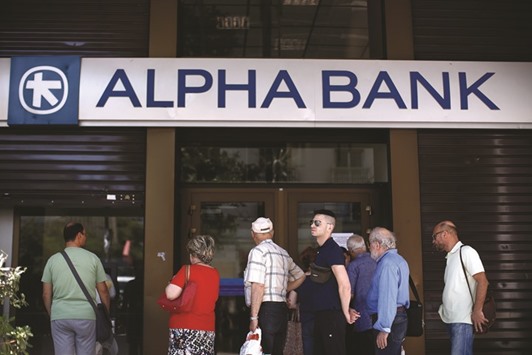Alpha Bank, Greece’s fourth-largest lender by assets, swung to a loss in the final quarter of 2015 after it more than doubled its provisions for bad debts.
Alpha, 11% owned by the country’s bank rescue fund HFSF after a recapitalisation late last year, reported a net loss of €533mn ($582.3mn) after a profit of €414mn in the third quarter.
“We are leaving behind us a difficult year, marked by severe deposit outflows, the imposition of capital controls and a requirement to raise additional capital,” chief executive Dimitris Mantzounis said in a statement.
Alpha raised all the capital required to cover the adverse scenario in a European Central Bank stress test late last year from private investors, without resorting to state aid.
“In 2016, we target to improve operating profitability through cost containment initiatives and a further reduction of our funding costs,” Mantzounis said.
He said a timely completion of the country’s first bailout review is essential for the economy to recover this year.
Alpha Bank’s non-performing credit — loans in arrears for more than 90 days — rose to 36.8% of its loan book at end-December from 36.5% at end-September.
Provisions for bad debt more than doubled from the previous quarter to €664mn, including 443mn related to an asset quality review that was part of the ECB health check.
The bank said cash coverage of its non-performing loans increased to 69%.
Borrowing from the ECB and the Bank of Greece decreased by €2.7bn to €24.4bn at the end of December, helped by the capital boost and deposit inflows.
Funding from the Greek central bank’s emergency liquidity window stood at €19.6bn.
Alpha had deposit inflows of €1.0bn in the fourth quarter, stemming from business accounts.

..
